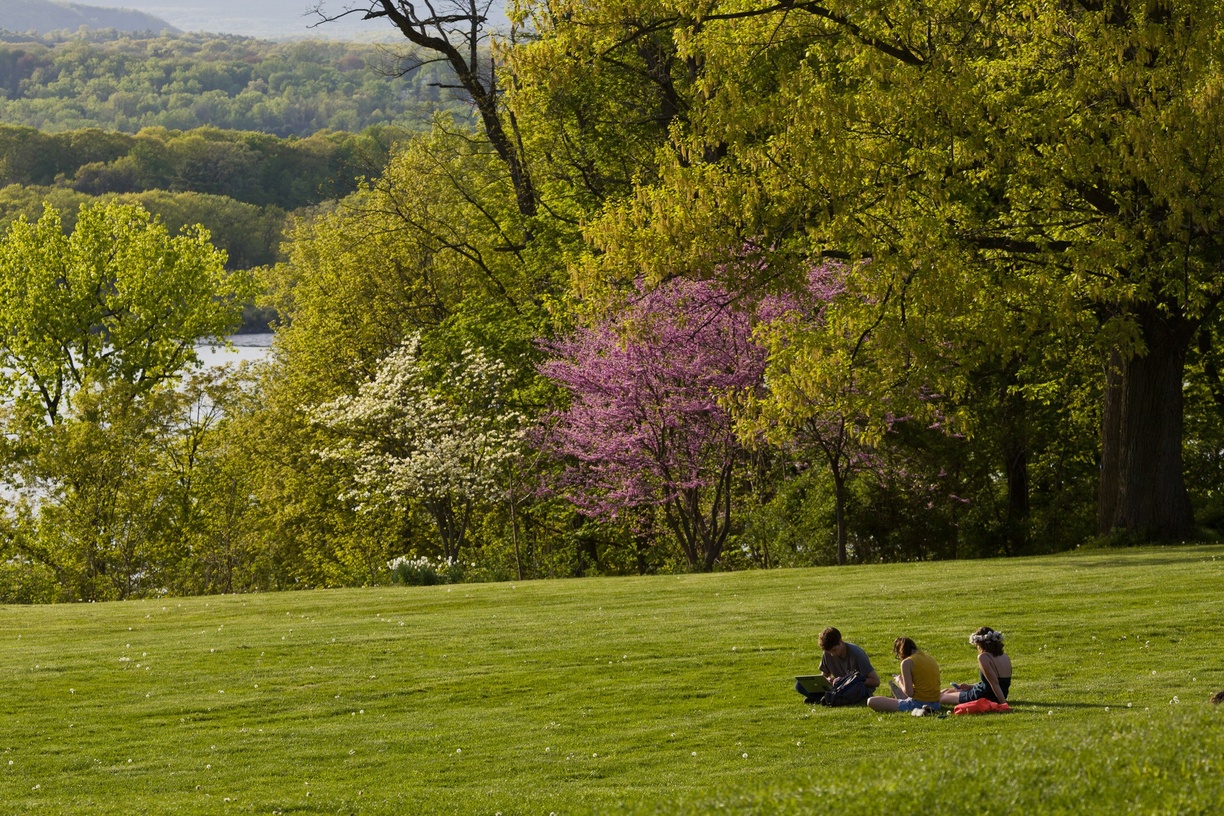Land Acknowledgement for Bard College
In 2020, Bard College adopted the following land acknowledgement in cooperation with the Stockbridge-Munsee Community: “In the spirit of truth and equity, it is with gratitude and humility that we acknowledge that we are gathered on the sacred homelands of the Munsee and Muhheaconneok people, who are the original stewards of the land. Today, due to forced removal, the community resides in Northeast Wisconsin and is known as the Stockbridge-Munsee Community. We honor and pay respect to their ancestors past and present, as well as to future generations, and we recognize their continuing presence in their homelands. We understand that our acknowledgment requires those of us who are settlers to recognize our own place in and responsibilities toward addressing inequity, and that this ongoing and challenging work requires that we commit to real engagement with the Munsee and Mohican communities to build an inclusive and equitable space for all.” Read more about the Bard Land Acknowledgement here.
In 2022, Bard received a transformational endowment gift from the Gochman Family Foundation to support the creation of a Center for Indigenous Studies, faculty appointments and student scholarships, and the appointment of a Fellow in Indigenous Art History and Curatorial Studies at CCS Bard. The first person to hold this position at CCS is Candice Hopkins (Carcross/Tagish First Nation), Executive Director and Chief Curator of Forge Project, a Native-led initiative centered on Indigenous art. Learn more about the endowment gift here.
About the Center for Curatorial Studies
Established in 1990, the Center for Curatorial Studies (CCS Bard) is an incubator for experimentation in exhibition-making and the leading institution dedicated exclusively to curatorial studies—a discipline exploring the historical, intellectual, and social conditions that inform curatorial practice.
The Center for Curatorial Studies has several interconnected parts:





